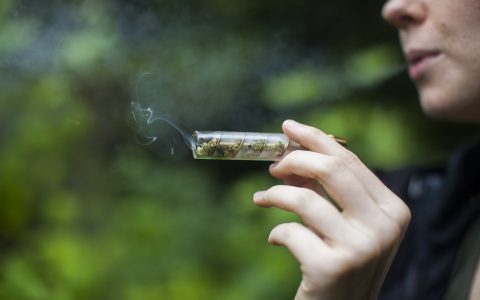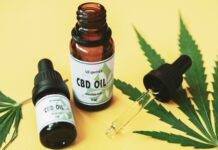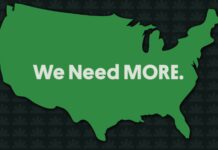I was living in Boston when the debate about legalizing recreational cannabis in Massachusetts was still contentious. The feeling around town was that it was something of a fait accompli, but the anti-cannabis lobbyists, bless their hearts, didn’t give up their fight. They frequently ran a commercial featuring some suburban everymom loading her tweenish children into her minivan when suddenly a look of horror comes over her face. The shot cuts to a teenage boy, presumably her son, high as a kite (and happy as a clam, I might add).
The message was clear and concise—if recreational cannabis is legalized, teens will be high all the time. It’s also dead wrong.
There are two analogues that provide a definitive explanation of how recreational cannabis legalization will affect teens in Canada: what’s happened in the various American states that have already undergone legalization long enough to have measurable effects and underage alcohol consumption in Canada.
According to a new, non-partisan study from the RAND Drug Policy Research Center, cannabis legalization for adults 21 and over in Washington has not led to increased teen use of the drug.
The National Survey on Drug Use and Health—an annual study conducted by the US Department of Health and Human Services—similarly found that not one state saw a significant uptick in cannabis use among teens in recent years; and the states with the sharpest decreases were California, Oregon, and Colorado, states in which recreational cannabis use is legal for adults.
It will be a lot harder for teens, now that their provincial government is the primary dealer and is willing to hand out whopping fines and serious prison time for any would-be competitors.
“These survey results should come as welcome news to anyone who worried teen marijuana use would increase following legalization,” said attorney Brian Vicente, who helped write Colorado’s cannabis legislation. “Teen use appears to be dropping now that state and local authorities are overseeing the production and sale of marijuana,” he added. “There are serious penalties for selling to minors, and regulated cannabis businesses are being vigilant in checking IDs.”
Essentially, teen cannabis consumption in states where it is legal for adults looks very much like teen alcohol consumption everywhere—strict government regulation has made it more difficult for teens to get their hands on any.
Regulations and Harsh Fines in Effect
Canadian alcohol regulations have always had something of a loophole for kids. Underage Canadians are allowed to consume alcohol, provided that it is given to them by their parents and is only consumed under their direct supervision in their own home. It was a nod to the communities that have traditionally served teens and sometime even children a little wine with meals. Underage guests are not permitted the right to drink in any case but many Canadian parents fudge that rule.
Of course, that only accounts for a trickle in a good-sized stream of underage drinking. Since technology and stiff fines have just about put an end to the effectiveness of fake IDs, teens in Canada generally acquire alcohol from sympathetic or unwitting parents, family or friends who acquire it legally—there’s not a whole lot of moonshine in Canada these days.
There is some illegal trade in alcohol to minors, but it is small and ad hoc at best. Back in 2011, two teens hanging around outside a Toronto Liquor Store offered me $50 to buy them a bottle of cheap sparkling wine. Not only did they not have any luck with me, but I watched as dozens of others turned them down. I didn’t think about why I said no at the time, but hours later I Googled the Ontario penalty for providing alcohol to minors—up to a $200,000 fine and as much as a year in jail.
The regulations will be even harsher for cannabis. The federal legislation prohibits: “products that are appealing to youth, packaging or labelling cannabis in a way that makes it appealing to youth, selling cannabis through self-service displays or vending machines and even promoting cannabis, except in narrow circumstances where young people could not see the promotion.” If any legal cannabis retailer thinks he or she might want to make an extra buck by putting up an appealing sign, then that person would face a fine of up to $5 million and a maximum of three years behind bars.
And, if anyone other than a licensed retailer gets caught giving or selling to minors or “using a youth to commit a cannabis-related offence,” things get even more serious—a maximum prison stay of 14 years.
Canadian teens will continue to get and use cannabis, just like they do alcohol. But it will be a lot harder for them, now that their provincial government is the primary dealer and is willing to hand out whopping fines and serious prison time for any would-be competitors.
I asked my own teenage son why he thought cannabis use was declining among his peers in states that have legalized it. “It’s obvious,” he told me, as though I asked him if water was wet. “Why would anyone risk getting into major trouble when they can buy it legally in a few years?”














